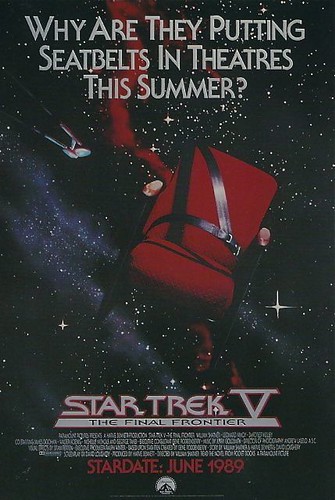Rethinking your premises doesn't necessarily damage what was established before; done right, it can just add new facets to the characters.
(Not that anybody is really defending ST V!)
Sure, but in this particular case, I really think DC Fontana had a point. Had Sybok been a revered mentor/teacher of young Spock, the film might have been just as strong (or stronger). Had Sybok filled the gap of some of those 18(?) years where Spock and Sarek did not speak?
Or, perhaps if Sarek had also shared scenes with the now-adult Sybok in ST V?
That Shatner deliberately pursued his half-brother-Sybok premise after Roddenberry and Fontana (ironically still at odds over the creatorship of TNG at the time) specifically suggested that Shatner reconsider that plot aspect is... telling. Many fans bristled that Director Shatner was ignoring sage advice just because he could. At the time I recall it antagonized fans to start to look for other reasons to dislike the film, too.



